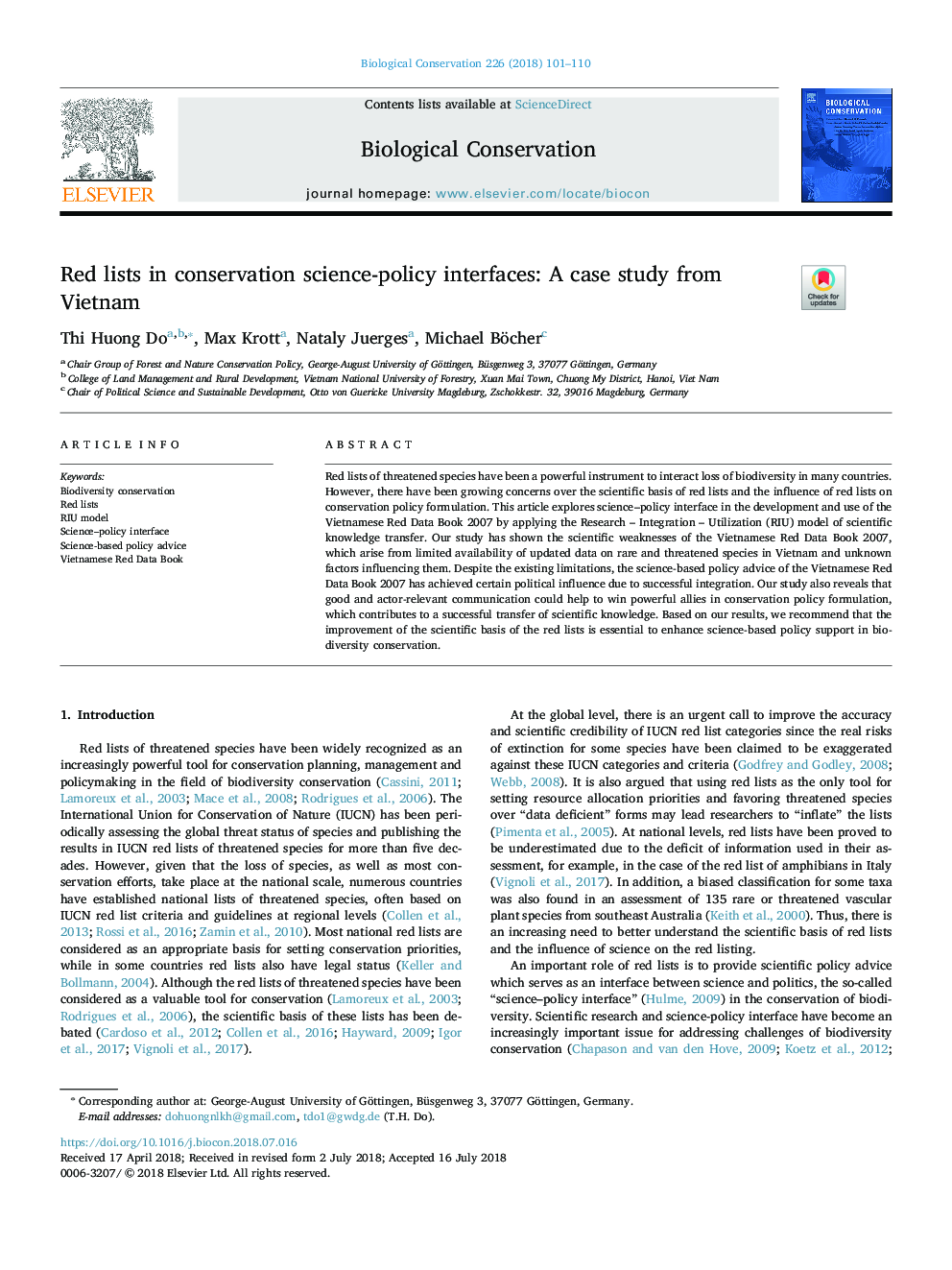| Article ID | Journal | Published Year | Pages | File Type |
|---|---|---|---|---|
| 8847094 | Biological Conservation | 2018 | 10 Pages |
Abstract
Red lists of threatened species have been a powerful instrument to interact loss of biodiversity in many countries. However, there have been growing concerns over the scientific basis of red lists and the influence of red lists on conservation policy formulation. This article explores science-policy interface in the development and use of the Vietnamese Red Data Book 2007 by applying the Research - Integration - Utilization (RIU) model of scientific knowledge transfer. Our study has shown the scientific weaknesses of the Vietnamese Red Data Book 2007, which arise from limited availability of updated data on rare and threatened species in Vietnam and unknown factors influencing them. Despite the existing limitations, the science-based policy advice of the Vietnamese Red Data Book 2007 has achieved certain political influence due to successful integration. Our study also reveals that good and actor-relevant communication could help to win powerful allies in conservation policy formulation, which contributes to a successful transfer of scientific knowledge. Based on our results, we recommend that the improvement of the scientific basis of the red lists is essential to enhance science-based policy support in biodiversity conservation.
Related Topics
Life Sciences
Agricultural and Biological Sciences
Ecology, Evolution, Behavior and Systematics
Authors
Thi Huong Do, Max Krott, Nataly Juerges, Michael Böcher,
